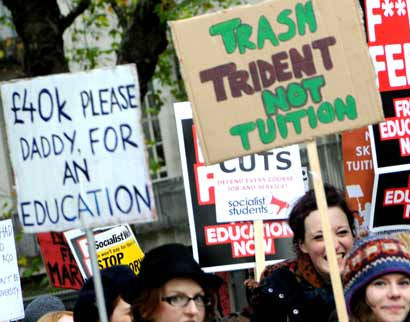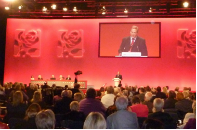 By Calum Sherwood, Co-Chair of Bristol Labour Students
By Calum Sherwood, Co-Chair of Bristol Labour Students
Ed Miliband’s announcement at Labour Party conference apparently endorsing £6000 fees was a great disappointment to many students, within and without the party. As a leadership candidate Miliband had endorsed a graduate tax, which while imperfect, suggested to students he was opposed to the status quo. To accept the reviled tuition fees system as here to stay severely jeopardises Miliband’s position with students, and as Nick Clegg has seen, this can be a dangerous move. Students refuse to accept that free education is off the negotiation table, and the Labour Party must seize back the progressive ground on higher education policy.
Up and down the country, the student movement shares a common set of values which is opposed to privatisation, cuts to essential services, the marketisation of education and the furthering of a militaristic and imperialist foreign policy. The most effective way for the Labour Party to win back the support of those students who abandoned the party would be to demonstrate that they are in tune with those same values. Labour must begin by explicitly opposing the renewal of the Trident weapons system; at a cost of £100 billion when EMA is being scrapped and tuition fees are being raised to a phenomenal cost, students would appreciate a reality check on renewing such an egregiously costly relic from the Cold War days.
Labour must condemn any further imperialist interventions by Britain, opposing the sabre-rattling of those who would have us do to Iran what we did to Iraq. Labour must get on the side of 74% of the British public and agree that four more years of war in Afghanistan is unacceptable. Lastly, Labour must support free education for all. If education is a universal right, financial burden should never become a factor in achieving one’s academic potential. Knowledge is not a commodity which can simply be bought and sold, and to think so is anathema to the values of the Labour Party itself. Miliband must remember how his boldness energised students during his leadership campaign, and in turn harness the boldness of the values of the student movement in order to win them back to Labour.



